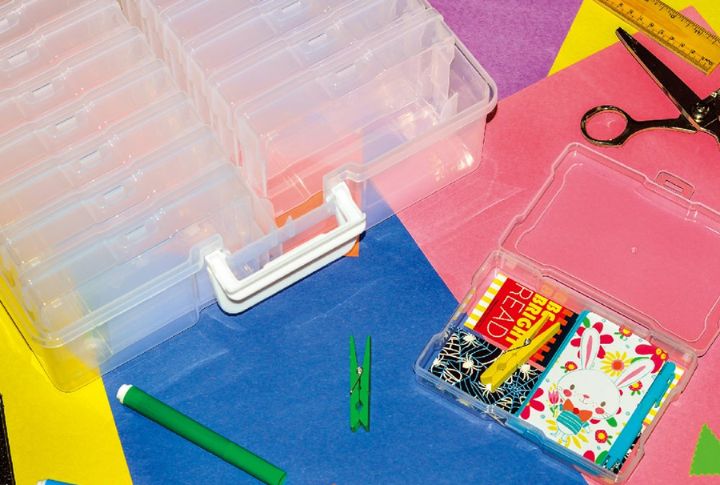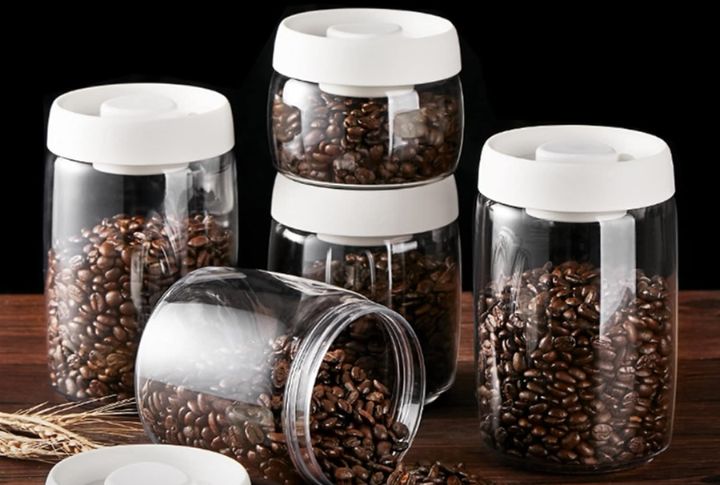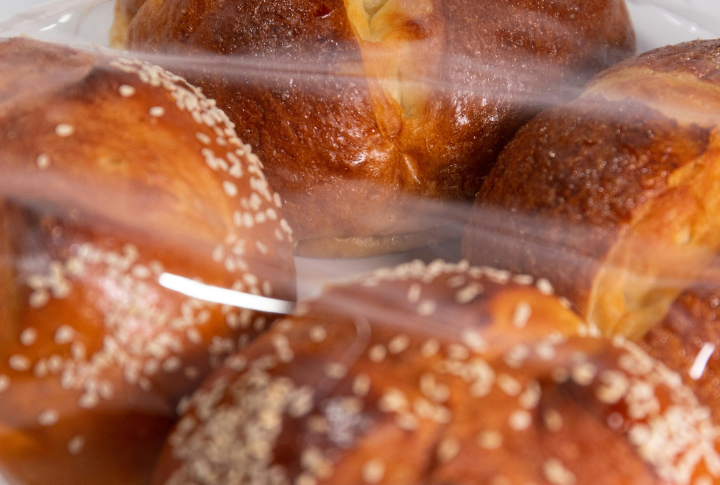
Storing belongings in plastic containers may seem like a practical solution, but not everything thrives in these seemingly all-purpose vessels. Certain items can actually deteriorate or even pose health risks when exposed to the chemical composition and confined environment of plastic containers. To ensure the longevity and safety of your possessions, here are 30 items you should avoid storing in plastic:
Medicine

Certain medications can degrade when stored in plastic containers, especially if exposed to light and air. Some demand specific storage conditions to preserve their potency. So, keep medicines in their original packaging or store them in dark glass bottles to ensure they remain effective.
Nuts and Seeds

Although plastic containers may be the ideal solution for storing nuts and seeds, they aren’t suitable for long-term use. Most plastics allow air and light to penetrate, causing oxidation and rancidity. To maintain freshness, consider using airtight glass jars or metal tins instead. These ensure a longer stay for your flavorful snack.
Batteries

Preserving your battery’s lifespan starts with proper storage. And that includes avoiding plastic containers. Why? Here, they can absorb moisture, leading to corrosion and leaks. Corroded batteries pose risks to both safety and your devices. Instead, use a cool, dry storage box made of metal or other non-plastic materials to keep your batteries safe.
Fresh Herbs

Nothing does harm to herbs like improper storage. Plastic containers emit too much moisture and it causes your herbs to wilt quickly. These delicate greens thrive in slightly breathable environments. So, wrap your herbs in a damp paper towel and store them in a perforated bag to maintain their freshness and flavor.
Candles

Leaving candles in plastic containers can deform or melt due to temperature fluctuations. The heat can also make plastic warp or leach chemicals into the wax, affecting the scent (if it’s a scented candle). A better alternative is to keep candles in cool, dry places, preferably in glass or metal containers, to maintain their shape.
Tomato-Based Sauces

Tomato-based foods stain plastic and absorb chemicals that affect both taste and safety. Over time, plastic can also degrade from acidic foods such as these, compromising your container’s integrity. It’s best to transfer these leftovers to glass or ceramic for longer-lasting freshness and a cleaner container.
Essential Oils

Nobody wants to ruin the quality of their essential oils. Or the container because these oils can corrode plastic over time, affecting potency and purity. To prevent leakage and contamination, store them in dark glass bottles. It protects them from light and chemical reactions, ensuring your oils remain effective and safe.
Nail Polish

When you house nail polish in plastic containers, it causes the polish to dry or thicken, and as you all know, thick polish is hard to apply. Exposure to some natural elements can also alter the color and texture. Instead, keep nail polish in a cool, dark place, preferably in their original glass bottles, to maintain their quality.
Cleaning Supplies

Plastic containers can react with certain chemicals found in cleaning supplies, potentially causing harmful reactions. Some cleaners can break down the plastic, leading to leaks and spills. Store cleaning supplies in their original bottles or use labeled glass containers for safety and peace of mind.
Eggs

These containers aren’t ideal for storing eggs because they can trap moisture and bacteria. Such an environment can also accelerate spoilage, causing an unpleasant odor. It’s best to keep eggs in their original carton in the fridge, where they stay fresh longer and are less prone to cracking.
Bacon

If you think plastic is the best way to keep bacon fresh, think again! While it may seem convenient, bacon releases moisture that can lead to spoilage when trapped in plastic. Instead, use wax paper or parchment and store it in the fridge for optimal freshness.
Artwork or Photographs

Heat and moisture can cause artwork or photographs to stick together, warp, or fade if kept in plastic. Your best option is to store these items in acid-free, archival-quality containers to preserve their quality. These materials protect your treasures from environmental damage without the risk of trapping harmful moisture like plastic does.
Coffee Beans

Stashing coffee beans in plastic is like leaving the lid off your favorite candle; it won’t smell the same! Beans stored in plastic lose their aroma and freshness quickly. A sealed, opaque container best preserves that rich, caffeinated goodness.
Yogurt

While yogurt is often sold in plastic containers, it’s not ideal for long-term storage once opened. Plastic can encourage the growth of bacteria and may affect the taste of the yogurt. For better storage, transfer yogurt to a glass container and seal it tightly to maintain freshness.
Alcohol

Storing alcohol in plastic containers is a big no-no. Alcohol can react with plastic over time, leaching harmful chemicals and affecting taste. Always store liquor in its original glass bottle or transfer it to a glass decanter to preserve the flavor and avoid potential contamination.
Crackers

Plastic containers can make crackers stale faster by allowing moisture to seep in. To maintain their crunch, store crackers in an airtight tin or glass container. This keeps them crisp for much longer, and it ensures you always have a crunchy snack ready for your cheese or spreads.
Fresh Bread

Keeping bread in plastic can suffocate and make it stale or mold quickly. The lack of airflow encourages moisture to build up, spoiling the bread. For bread that stays longer, store it in a paper bag or a breathable bread box to maintain its crisp crust and soft interior.
Berries

Those fresh berries tend to spoil faster when stored in plastic containers. Plastic traps moisture, which leads to mold and mushy textures. Instead, store them in a breathable container, like a paper-lined colander in the fridge. This method keeps them fresher, tastier, and ready for snacking longer.
Garlic

Garlic stored in plastic containers or bags can trap moisture and cause it to mold or sprout faster. Garlic needs air circulation to stay fresh, and plastic doesn’t provide that. The best option is to keep garlic in a mesh in a cool, dry place. This will help maintain its scent and extend its shelf life.
Leftover Soup

For those who love storing leftover soup in plastic containers, beware! The acidity and heat from certain soups can cause harmful chemicals to seep into your food, impacting taste and health. Opt for glass containers, which provide a safer alternative for storing liquids, particularly hot or acidic dishes.
Leather Goods

Leather products, like shoes, bags, or jackets, need to breathe to maintain their softness and durability. Storing them in plastic containers traps moisture, leading to mildew, cracking, or discoloration. To keep leather in top shape, store it in breathable cotton bags or a well-ventilated closet.
Spices

While it’s convenient to store spices in plastic containers, they can absorb oils and scents over time, changing the flavor. Instead, choose glass jars or metal tins. These materials maintain freshness longer and ensure the unique flavors and aromas of your spices remain intact, enhancing your culinary creations.
Fresh Fruit

It’s tempting to store fruit in plastic containers for convenience, but this can lead to quicker spoilage. Plastic traps ethylene gas, and this gas accelerates the ripening of fruits like berries, peaches, and grapes. For better longevity, opt for breathable containers or place fruit on a plate to allow proper air circulation.
Chocolate

Plastic containers can compromise the flavor of chocolate by absorbing unwanted odors and altering its taste over time. So, store chocolate in a dry place to preserve its rich flavor and texture. Wrapping it in foil or using glass containers is the best way to keep it fresh and delicious.
Cheeses

Cheese and plastic containers don’t mix well, as plastic prevents airflow, leading to moisture build-up and quicker spoilage. Hard cheeses, in particular, require airflow to maintain their texture. To help cheese last longer and preserve its natural flavor, wrap it in wax paper or parchment instead of plastic.
Pickled Foods

Naturally, pickled foods benefit from glass storage, as plastic can react with acidity to alter flavors and potentially leach harmful substances. Glass jars are non-reactive to ensure the pickling liquid stays fresh. They also allow easy visibility of your pickles while minimizing the risk of contamination. Glass is therefore the ideal choice.
Makeup

Keeping makeup in plastic containers can compromise its quality. And so, it’s essential to consider alternative storage. Chemicals in liquid and cream products may react with plastic and contaminate the products. For optimal preservation, choose glass or acrylic storage options. These ensure your cosmetics stay fresh and extend their shelf life.
Documents

The feeling of having a damaged document is unsettling. Documents stored in plastic can absorb moisture, leading to mold and mildew that deteriorate the paper. Additionally, ink may adhere to plastic over time, obscuring crucial text. To safeguard your documents, use archival-quality folders or boxes in a dry, climate-controlled space.
Jewelry

We know how expensive some jewelry pieces can be, and storing them well is essential. Plastic containers trap moisture making them tarnished and dull, especially on gold and silver. The best route is to use velvet-lined boxes or breathable cloth bags to ensure your treasured items remain protected and beautifully shiny for years.
Electronic Devices

It may seem convenient to toss small electronic devices or accessories into a plastic container, but this can lead to potential damage. Electronics are sensitive to humidity, and keeping them in a plastic box could shorten their lifespan. Use an anti-static bag or container designed to keep electronics safe.

Comments
Loading…